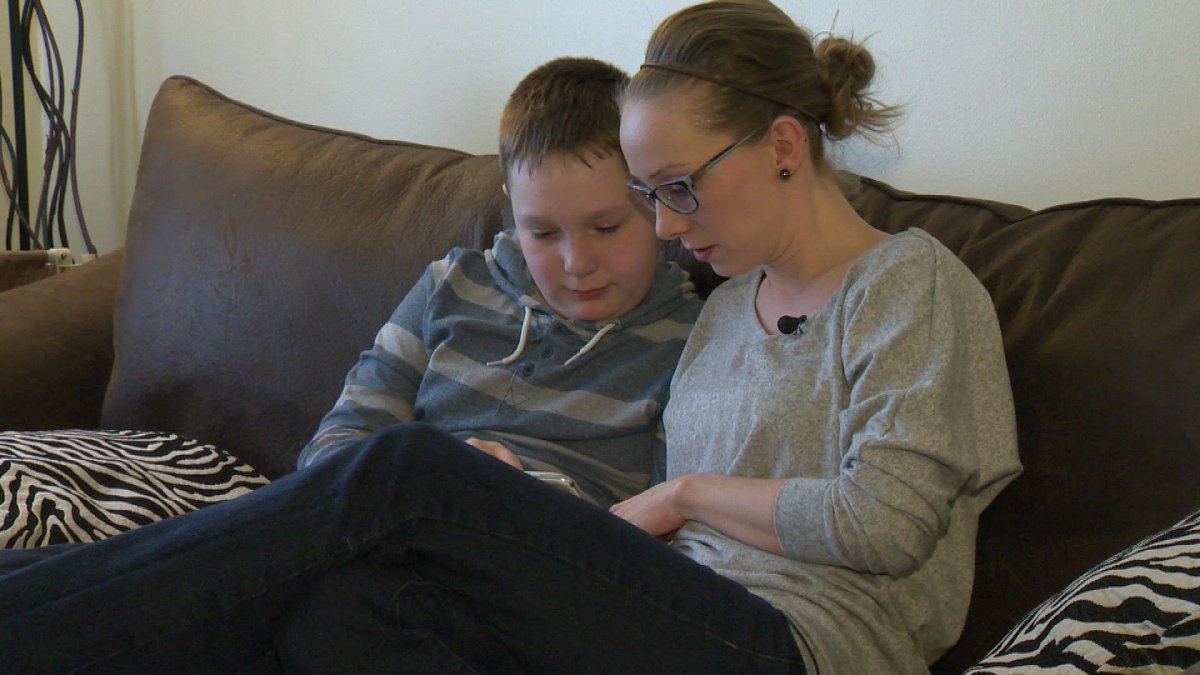MONCTON – After fighting for months to get an English diagnosis for her son, a clinical child psychologist has offered Shanna Worden a translation for free.

Dr. Charles Emmrys heard about Worden’s story and offered to help. He approached Global News and offered the translation along with a free consultation to Worden to make sure she completely understands the document.
“Who is the most powerful advocate for autistic kids? Their parents,” Emmrys told Global News Tuesday. “Who needs the information and needs the information understood? Their parents. Who’s going to be the primary interpreter of that report? It’s not going to be the assessor, he’s not available or she is not available. It’s going to be the parent.”
Dr. Emmrys said autistic children face challenges at every stage of their life and they need a strong advocate. For this reason, Emmrys said the diagnosis needs to be in the language parents understand. He added the success of the recommendations afterward depends on the parent’s cooperation.
“I think I need to stress the importance of the fact that assessors don’t serve institutions, assessors serve clients,” he said.
Worden was overjoyed when she heard the news.
“It was the best case scenario,” she said. “Now we have nothing holding us back.”
Worden had been trying since August to get an English copy of her son’s autism diagnosis.
Chayse, 11, was diagnosed by a doctor in the Vitalité Health Network, and even though the consultation was done in English, the document was provided in French. Worden doesn’t speak French and when she repeatedly asked Vitalité for a translation, she was told they don’t provide the service.
READ MORE: Moncton mother wants autism diagnosis for her son translated to English
Law professor Michel Doucet, director of the International Observatory on Language Rights at the University of Moncton, said Worden’s case is not unique and he has heard of the problem before with both English and French patients.
“It does happen in the Horizon Health Network and also in the Vitalité Health Network,” he said. “So it’s not something that is very particular to one community. It happens to both communities.”
Doucet believes there’s a contradiction in the law because there are two different acts that regulate languages in health care.
Provision nine of the Personal Health Information Privacy and Access Act says if the information is not available in the individual’s official language of choice, the health authority only needs to provide “the individual with access to a physician or other health care provider to assist the individual in interpreting his or her record.”
He says this conflicts with section three of the Official Languages Act section which says no act can “repeal, limit or contravene a provision of this Act and, in case of conflict, this Act prevails.”
He says Worden would have a strong case if she made a complaint to the Commissioner of Official Languages.
“That act should prevail in all cases when another law limits the rights that are provided by the Official Languages Act and that is exactly what the other act is doing,” Doucet said.
Worden said even though she will be getting her document translated, she will be filing a complaint. She doesn’t want anyone else to face the same situation.
“I believe it’s very important to go that step because I know it’s not an isolated situation,” she said. “New Brunswick needs to change.”




Comments